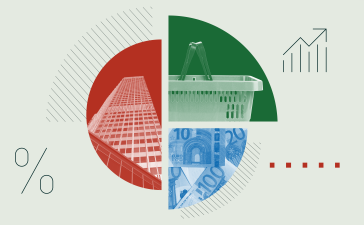Chinese property developer Dalian Wanda’s second dollar bond sale in less than a month was quickly oversubscribed on Monday, pointing to a renewed hunger from global finance after years of concern about the financial health of China’s highly indebted real estate groups.
The sale of a three-year US dollar bond by Wanda received orders worth around $500mn, according to two people familiar with the deal, who said the developer had planned to raise as much as $300mn from the offering.
The latest debt sale by Wanda, which had already brought in $400mn from a bond issued in January, underscored a nascent recovery for high-yield dollar debt in Asia. Sales had all but evaporated over the past two years as Chinese authorities clamped down on excessive leverage in the sector. Issuer Wanda Properties Global set guidance for the bond’s yield at around 12.5 per cent.
Investment bankers in the region say foreign investor appetite has returned as Beijing seeks to bolster the hard-hit sector. The government has scrapped targets for equity and assets meant to limit the leverage of property groups. The targets had previously served as a warning to banks to avoid lending too much too quickly to developers.
One person familiar with the deal said investors who had put in orders for the January offering had “come back asking for Wanda to raise more” after they did not receive sufficient allocations from the last deal, which drew demand of about $1.4bn.
The person said Wanda was unlikely to use all of its dollar debt issuance quota from China’s central government, which would allow it to raise another $400mn before expiring in March. “We’re going to be looking at a size of $200mn to $300mn,” the person said.
A fund manager in Hong Kong described the bond sale as a “barometer for investors’ confidence” in China’s property sector.
The government’s renewed support for the industry has given a boost to bonds from developers with stronger balance sheets. Dollar bonds from real estate groups such as Country Garden and Wanda have clawed their way back to face value after trading in distressed territory.
Not all developer bonds have recovered, with those from defaulting developers such as China Evergrande — which has repeatedly missed restructuring deadlines — still languishing at distressed levels. Bankers in the region say many bond investors are still wary of the property sector.
However, the broad improvement in sentiment is reflected by gains for Bloomberg’s China high-yield dollar bond index, which is dominated by developers and recently hit the highest level in almost a year after touching a record low in November.
“The financials [at Chinese developers] are getting better,” said Bruce Pang chief economist for greater China at JLL.
Pang said Beijing’s increased policy support had begun to bolster cash flows at the country’s real estate groups, helping to alleviate the threat of a cash crunch that has dogged the industry in recent years. That is likely to feed through to more dollar bond issuance in the year ahead, he said.
“The supply will be better this year, but the question is demand,” Pang said. “Issuers will have to set attractive terms to ease investor concerns about their credit risk.”
Credit Suisse is the global co-ordinator and bookrunner for the deal.
Additional reporting by Sun Yu in Beijing










